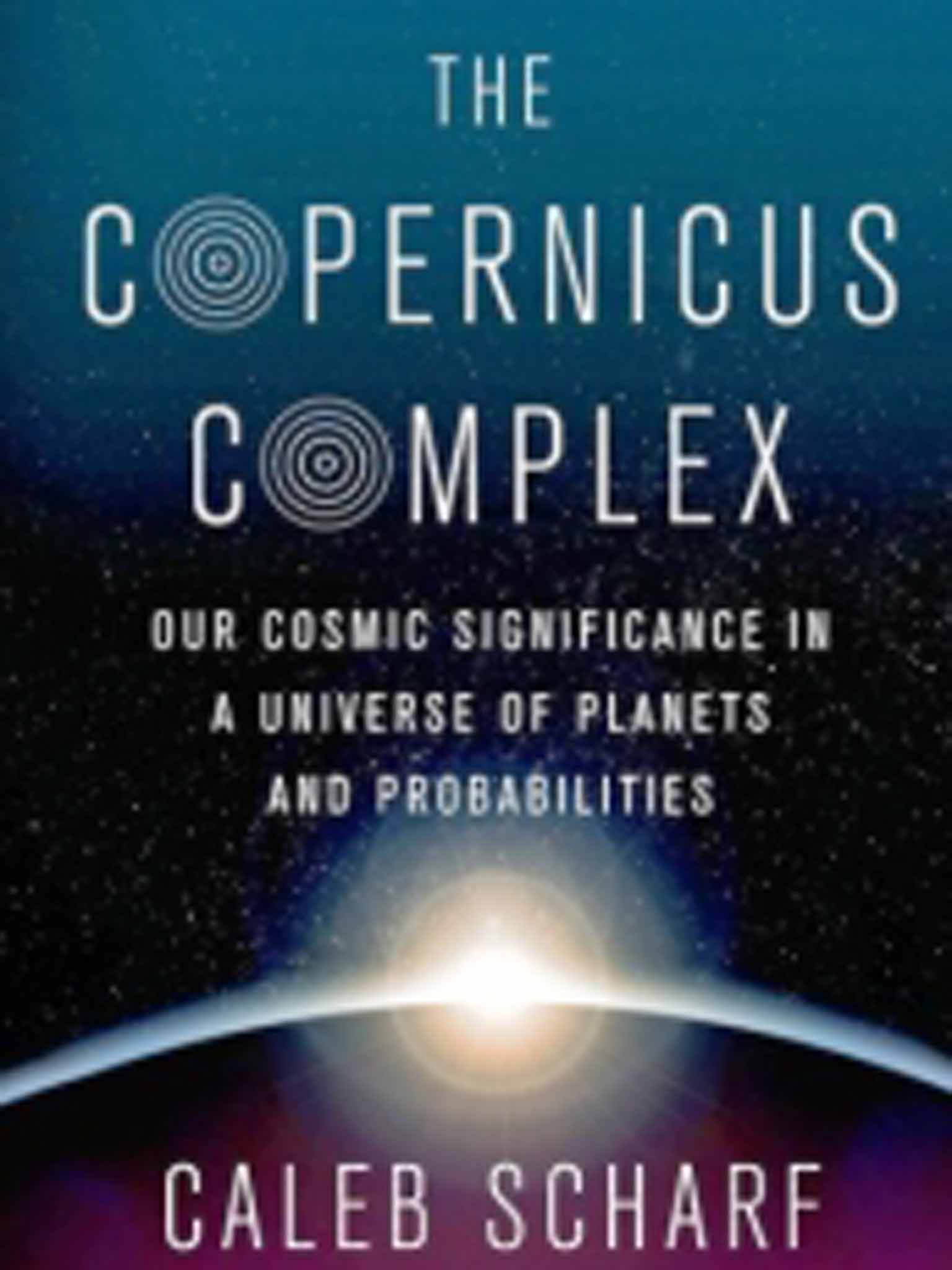The Copernicus Complex: The Quest for Our Cosmic (In)Significance by Caleb Scharf - book review: Tantalising approach to the mysteries of the universe

Your support helps us to tell the story
From reproductive rights to climate change to Big Tech, The Independent is on the ground when the story is developing. Whether it's investigating the financials of Elon Musk's pro-Trump PAC or producing our latest documentary, 'The A Word', which shines a light on the American women fighting for reproductive rights, we know how important it is to parse out the facts from the messaging.
At such a critical moment in US history, we need reporters on the ground. Your donation allows us to keep sending journalists to speak to both sides of the story.
The Independent is trusted by Americans across the entire political spectrum. And unlike many other quality news outlets, we choose not to lock Americans out of our reporting and analysis with paywalls. We believe quality journalism should be available to everyone, paid for by those who can afford it.
Your support makes all the difference.Astrobiology is booming: this is the third new book by an astrobiologist I've read in five months. So what is astrobiology? It's the study of life in the universe: how it started on Earth and whether or not it will ever be found beyond our bounds. The very existence of the subject proclaims that the old overspecialised tendency of science – "knowing more and more about less and less" – has yielded to a multidisciplinary approach, in this case combining cosmology and molecular biology.
The book's title derives from the general principle that has ruled since Copernicus' demonstration that the Earth is not the centre of the universe: we live on an average planet, orbiting an undistinguished star, amid a firmament of countless billions such. The principle, known as Mediocrity, has been under attack for some decades now.
For much of the book the reader is dragged back and forth between two pantomime poles: according to the Mediocrity Principle, life must exist in countless parts of the universe. Oh no it doesn't, comes the reply – conditions on Earth are so special we could be the only life in the universe. Not until page 215 do we see a possible resolution. Caleb Scharf believes that life should emerge wherever certain boundary conditions occur – on the edge of chaos. He calls this the Cosmo-chaotic Principle, and it ties in well with the current, plausible theory of the origin of life on Earth in hot churning deep sea vents.
That single-celled life at least might exist elsewhere in the universe seems quite likely. But it took two billion years on Earth for multicellular life to evolve from the single-celled, bacterial forms. There might not be many parts of the universe that stay life-friendly for long enough for that to happen.
Curiously, considering the sophisticated instrumentation that has brought us to our present knowledge of life and the universe, some simple traps of language seem to bedevil Scharf's argument. He writes often that we on Earth might be "special" and "unique", but not yet "significant". Why does he assign a deeper meaning to "significance"? That only means "sufficiently great or important to be worthy of attention". Who's attention?
Scharf admits that today, despite having a much clearer picture both of the cosmos and life at its most fundamental, we are only "on the cusp" of knowing whether life exists anywhere else. As with so much current science, the big question is: how long will it take for the breakthrough? After 232 pages of speculation this is one guess he won't make. This is in many ways a tantalising book; a better one will be written when proof or disproof of life beyond Earth arrives.
Join our commenting forum
Join thought-provoking conversations, follow other Independent readers and see their replies
Comments